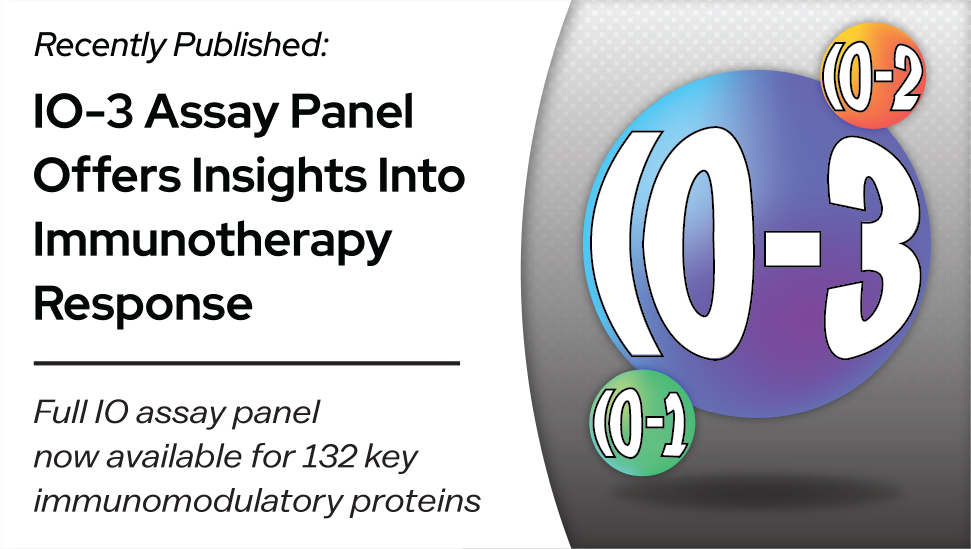Cancer immunotherapies hold promise for inducing durable responses across cancer types, yet their effectiveness varies significantly among patients. In an effort to deepen our understanding of the mechanisms underlying response and resistance to immunotherapy, CPTAC researchers from the Fred Hutchinson Cancer Center (FHCC) and the Frederick National Laboratory for Cancer Research (FNLCR) have developed a novel multiplexed immuno-oncology assay panel known as IO-3. This assay panel, recently featured in Scientific Data, offers a comprehensive and precise method for analyzing immune response.
 Historically, efforts to quantify key immunomodulatory proteins have relied on methods such as Western blotting and immunohistochemistry (IHC), which are labor-intensive and lack the specificity required for comprehensive analysis. In contrast, targeted mass spectrometry (MS) allows researchers to quantify multiple proteins simultaneously and with high accuracy.
Historically, efforts to quantify key immunomodulatory proteins have relied on methods such as Western blotting and immunohistochemistry (IHC), which are labor-intensive and lack the specificity required for comprehensive analysis. In contrast, targeted mass spectrometry (MS) allows researchers to quantify multiple proteins simultaneously and with high accuracy.
Study leader Dr. Jeff Whiteaker from the FHCC wrote, “MS has the benefit of being highly specific and multiplexable. Combining MS with immunoaffinity enrichment also improves sensitivity for low abundance analytes, greatly expanding the utility of this approach.”
The IO-3 panel was designed to target 43 peptides representing 39 immune- and inflammation-related proteins-of-interest. All viable peptides are unique to each protein-of-interest, and the final 43 peptides were selected based on a variety of factors including tryptic status, hydrophobicity, and certain post-translational modifications.
The panel was rigorously characterized and validated, with all the data available to the public. This includes features like antibody performance, mass spectrometer parameters, and reagent information. The researchers hope the availability of this data facilitates the widespread use of IO-3 assays in future research efforts.
This IO-3 panel also builds upon previous work done by the FHCC lab, including their IO-1 and IO-2 assay panels. Used together, these three panels allow for analysis of 132 immuno-modulatory proteins from a given biospecimen. Taken individually or as a set, these assays have the potential to support the identification of new biomarkers, enable the prediction of adverse events, aid mechanistic studies aimed at tumor susceptibility, and more.
Looking forward at potential impacts, Dr. Whiteaker commented “these assays will provide highly robust protein measurements in clinical trials and exploratory studies, aiding our understanding of immunotherapy response and immune-related adverse events.”
All the antibodies were further characterized by the Antibody Characterization Laboratory at FNLCR to provide additional information about the antibodies and their potential use in other biological assays such as western blot, IHC, flow cytometry and Immunofluorescence, to name a few. All the resulting data, both positive and negative is made available on the NCI’s antibody portal.
FNLCR’s ACL director, Dr. Simona Colantonio describes the ACLs role in the characterization of these antibodies. “Approximately 40% of the antibodies produced using peptides for the purpose of immunoaffinity enrichment in targeted MS assays, also recognize the corresponding full-length protein, which broadens its utility to the researcher, allowing it to be used in other biological assays.”

